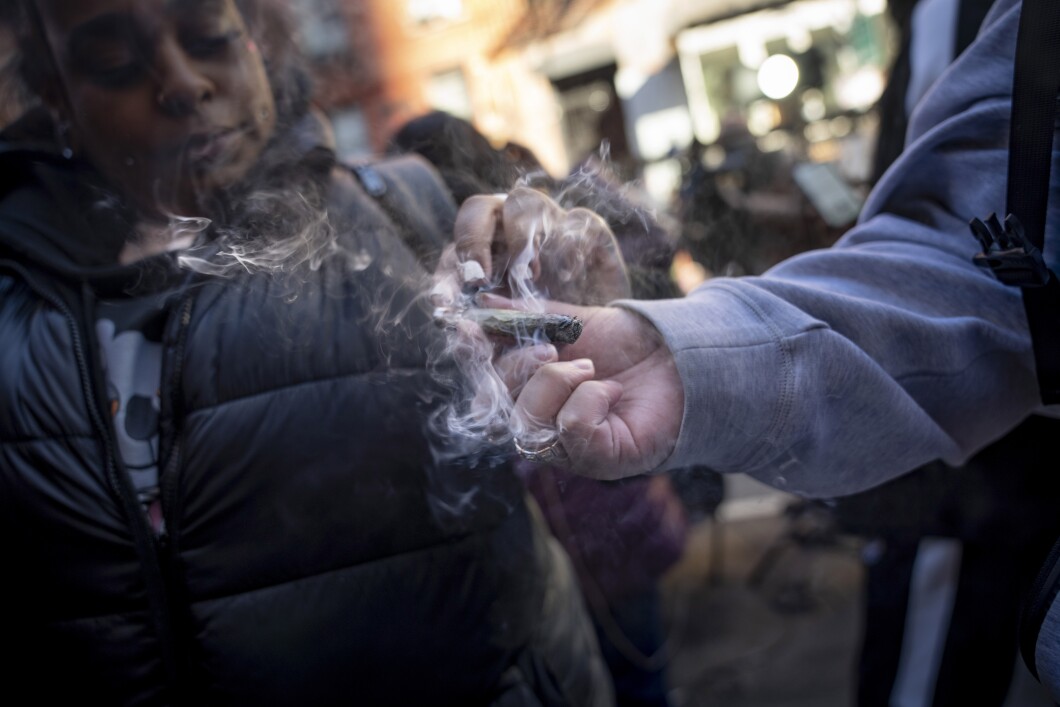
The U.S. Court of Appeals for the 5th Circuit on Wednesday voided a federal law preventing unlawful drug users from possessing guns, citing the Supreme Court‘s landmark decision from last year.
Under a federal statute known as 18 U.S.C. § 922(g)(3), anyone who is an “unlawful user of or addicted to any controlled substance,” including marijuana, can be banned from possessing a gun and face up to 10 years in prison for violating the law.
BIDEN CELEBRATES ONE-YEAR CHIPS ANNIVERSARY BY VOWING TO CONTINUE SECURING SUPPLY CHAIN

The decision only affects Texas, Louisiana, and Mississippi but means the man who brought the challenge, Patrick Daniels, will have his July 2022 conviction under the law tossed out. He has been sentenced to nearly four years in prison and three years of probation after he was arrested in April 2022 after law enforcement officers searched his car and found marijuana along with two loaded firearms.
The case is known as U.S. v. Daniels, and the decision was written by Judge Jerry Smith, joined by Judges Stephen Higginson and Don Willett. Together they held the law violated the Second Amendment and did not align with the Supreme Court’s test established in Bruen v. New York Rifle & Pistol Association, which established that firearms laws must conform with the nation’s “historical tradition of firearm regulation.”
“Just as there was no historical justification for disarming a citizen of sound mind, there is no tradition that supports disarming a sober citizen who is not currently under an impairing influence,” Smith wrote. “Indeed, it is helpful to compare the tradition surrounding the insane and the tradition surrounding the intoxicated side-by-side.”
The federal statute applied not only when a person is intoxicated but also when they are sober and in possession of a controlled substance.
The opinion goes on to suggest that the founders “institutionalized the insane and stripped them of their guns; but they allowed alcoholics to possess firearms while sober.”
The 5th Circuit has now become the first appellate court to declare two separate federal laws are invalid under the Bruen test. It previously voided a federal statute that made it a crime for someone subject to a domestic violence restraining order to be in possession of a firearm, a ruling that has since been appealed and is now pending oral arguments at the Supreme Court in the upcoming term.
The high court’s decision over the domestic violence statute in the case U.S. v. Rahimi will likely affect the result of this case, according to Higginson, who agreed on the outcome of the decision in Daniels on Wednesday but expressed distaste with the scope of the Bruen test.
Higginson wrote the “uncertainty and upheaval resulting from best efforts to apply Bruen now extend far beyond our dockets. Myriad and obvious public safety laws, some over a century old, face inconsistent invalidation.”
The judge also lamented the inconsistencies in which lower courts have interpreted Bruen, with some taking the test to its far reaches, such as the 5th Circuit, while others have been wary of how it should be applied against existing firearms regulations.
“Already, as courts work through the impact of Bruen, defendants guilty of a gun crime in one jurisdiction are presently innocent of it in another,” the judge continued.
Notably, President Joe Biden‘s son, Hunter Biden, is presently attempting to enter a plea deal with prosecutors in Delaware under the same federal statute that was struck down by the appeals court on Wednesday.
Brandon Beck, an assistant professor of law at Texas Tech University who previously represented the plaintiff in Rahimi during its early stages, told the Washington Examiner that 18 U.S.C. § 922(g)(3) is “garbage,” saying the language of the statute could make even users of Adderall liable.
“This statute is garbage. It has been since it was enacted in 1986. And people that work in this area know it, but this is the first time the judges are just kind of finally saying, ‘Oh, maybe there is something wrong here,'” Beck said.
CLICK HERE TO READ MORE FROM THE WASHINGTON EXAMINER
But Higginson’s language in the opinion also gave a chilling warning regarding the Bruen test, arguing any “further reductionism” of the Bruen precedent “will mean systematic, albeit inconsistent, judicial dismantling of the laws that have served to protect our country for generations.”
“This state of affairs will be nothing less than a Second Amendment caricature, a right turned inside out, against freedom and security in our State,” Higginson added.





